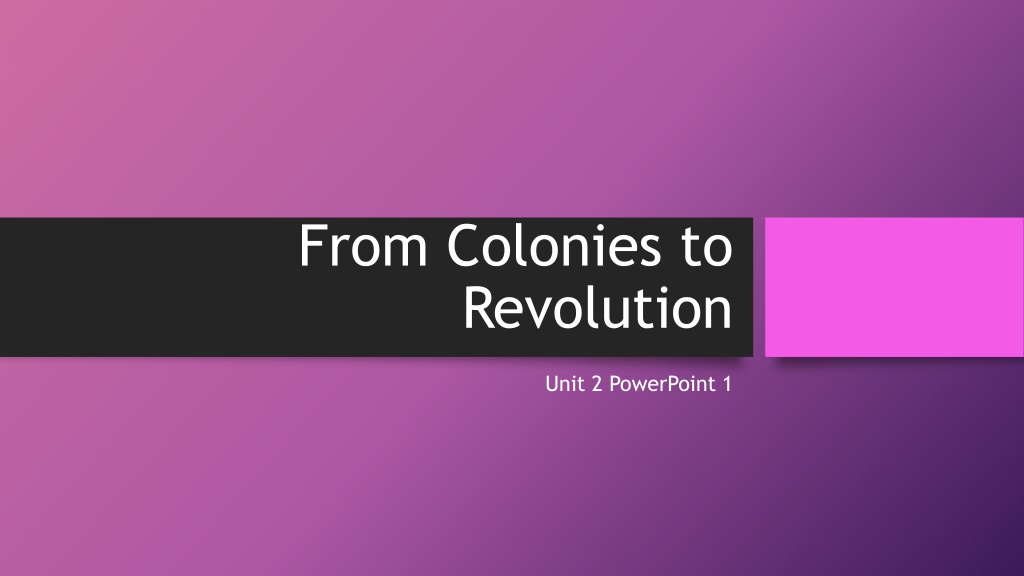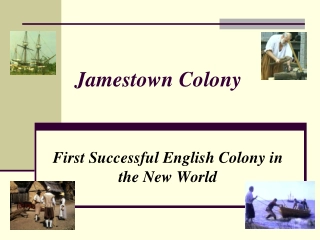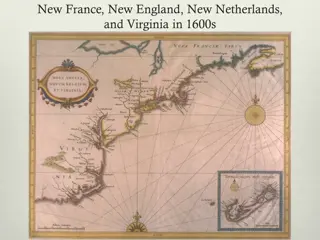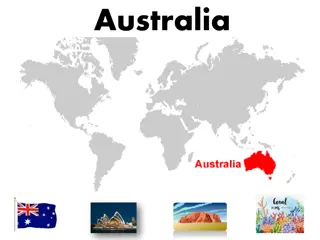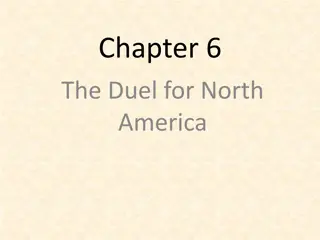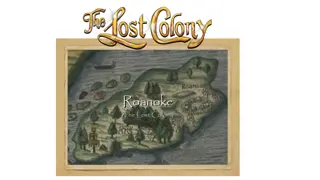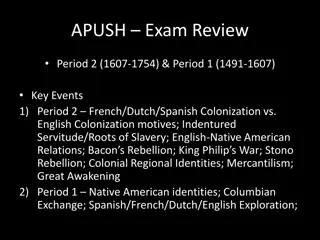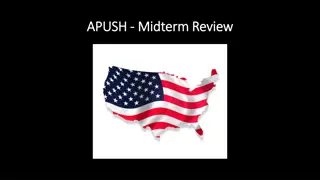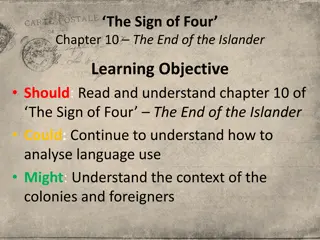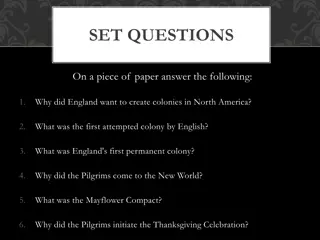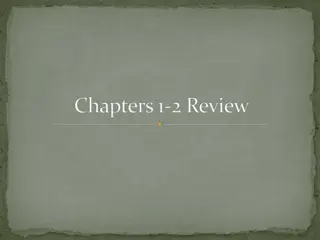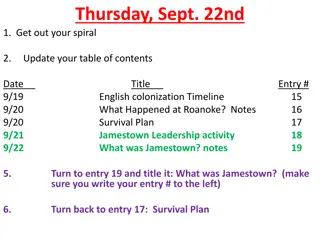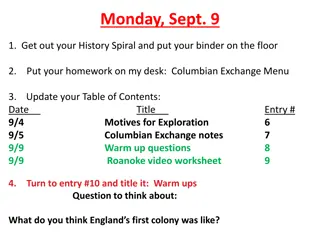English Colonization from Roanoke to Jamestown
Understanding the motivations behind English colonization, from economic reasons to religious freedoms and military alliances. Delve into the mysteries of Roanoke's disappearance and the struggles faced by the early settlers of Jamestown, including the introduction of tobacco farming by John Rolfe and its impact on colonization and relations with Native Americans.
Download Presentation

Please find below an Image/Link to download the presentation.
The content on the website is provided AS IS for your information and personal use only. It may not be sold, licensed, or shared on other websites without obtaining consent from the author.If you encounter any issues during the download, it is possible that the publisher has removed the file from their server.
You are allowed to download the files provided on this website for personal or commercial use, subject to the condition that they are used lawfully. All files are the property of their respective owners.
The content on the website is provided AS IS for your information and personal use only. It may not be sold, licensed, or shared on other websites without obtaining consent from the author.
E N D
Presentation Transcript
From Colonies to Revolution Unit 2 PowerPoint 1
Do Now: In your notebook What are the comforts of home you would be willing to go without? How long would you be willing to go without them?
Reasons for English Colonization Economic Reasons Enclosure Movement (1500s) Farmers trade crops for sheep Tenant farmers lose land and home No jobs, no inheritance, no future. New Markets/Northwest Passage
Reasons for English Colonization Religious Reasons Protestant Reformation 1517 Martin Luther 95 Theses 1527 Henry VIII Breaks with Catholic Church, establishes the Church of England with himself as the head of church. Puritans Wanted to purify the Church of England of Catholic influence Religious freedom
Reasons for Colonization Military Alliances England vs. Spain Protestantism vs. Catholicism Dutch side with England to dominate Atlantic trade Queen Elizabeth charters Roanoke Colony to have a base to attack Spanish ships. Defeat of Spanish Armada, 1588
What happened to Roanoke? Settled in 1585 Disappeared 1590 Theories: Colonists assimilated into two different Native Tribes Colonists killed by Spaniards 90 men, 17 women, 11 children all disappeared
Jamestown 1607 Early Troubles Poor location swampy too close to sea First settlers were townspeople, not farmers Arrived during a drought so food was scarce. 1609-1610 known as The Starving Time 500 settlers, only 60 survived until Spring
Tobacco and John Rolfe Tobacco Rolfe introduces tobacco farming in Jamestown Very profitable, but uses a lot of land Question: What impact does the introduction of tobacco farming have on the rate of colonization and relationship with the natives? Answer: More settlers lured to Jamestown to make money Colonists take more and more land causing conflict with the natives whose way of life was threatened.
Powhatan Uprising: March 22, 1622 On Friday before the day appointed by them for the attack they visited, entirely unarmed, some of our people in their dwellings, offering to exchange skins, fish and other things, while our people entirely ignorant of their plans received them in a friendly manner. "When the day appointed for the massacre had arrived, a number of the savages visited many of our people in their dwellings, and while partaking with them of their meal the savages, at a given signal, drew their weapons and fell upon us murdering and killing everybody they could reach sparing neither women nor children, as well inside as outside the dwellings. In this attack 347 of the English of both sexes and all ages were killed. Simply killing our people did not satisfy their inhuman nature, they dragged the dead bodies all over the country, tearing them limb from limb, and carrying the pieces in triumph around. "
Aftermath of Uprising of Jamestown Population killed Several women taken by the Powhatan Surviving colonists bond over the experience and begin to call themselves Virginians. House of Burgesses formed to govern the colonies.
America the Story of Us - Rebels As we watch Episode 1 Fill in the blanks of the worksheet.
Exit Ticket Write your answer on the back of your worksheet and turn it in as you leave the room. What impact did tobacco have on colonization and relationships with the natives?
